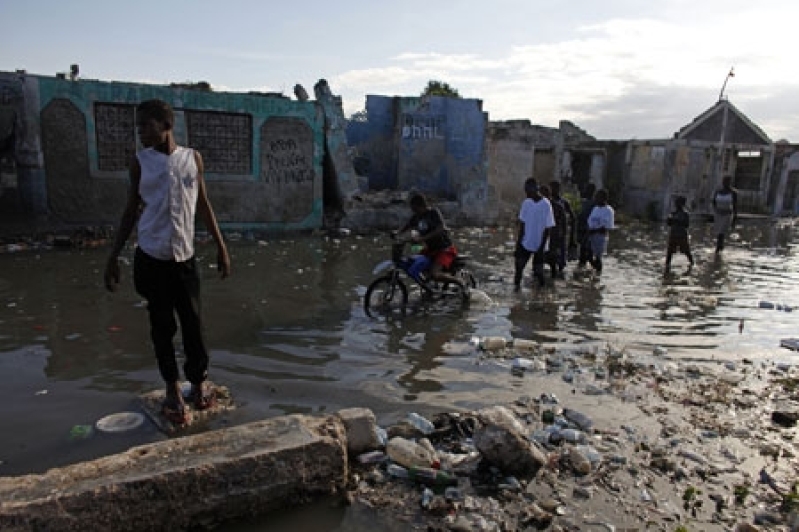
Less than a quarter of the 1.3 million Haitians who need shelter have it. And with the rainy season upon the quake-stricken country, aid groups are urgently asking for help.
"It is raining almost every night, forcing thousands of Haitians to seek out shelter by standing under half-destroyed buildings in order to escape the elements," Tim Rickel, vice president of communication for World Gospel Mission, reported Tuesday.
Rickel received a report from a missionary on the ground in Haiti revealing that more than 1 million people affected by the 7.0-magnitude earthquake that struck the island nation last month are either sleeping in tent cities or out in the open.
"Recently, a man whose home was totally destroyed came to the station. He and his wife were sleeping on the ground with a sheet draped over a few sticks. He was desperate because his wife was almost nine months pregnant and would be delivering their baby very soon," the missionary's report revealed.
World Gospel Mission is among numerous aid groups supplying heavy-duty plastic tarps to the homeless.
The Christian Reformed World Relief Committee distributed tarps last week in Masson, Leogane, where 80 percent of homes were damaged or destroyed by the earthquake. Nine hundred families received tarps.
The already devastated country was hit by a torrent of rain and a 4.75-magnitude aftershock on Sunday and then another aftershock on Tuesday.
"Now that we've attended to the wounded, taken away the dead, and we're distributing food and water, the problem of shelter, the tents, is the most urgent," President Rene Preval told Reuters last week.
While relief groups have made providing shelter a priority, the rain has raised sanitation concerns as the latrines swell and sewage spill.
More than 212,000 people were killed by the earthquake and damages are estimated to reach $14 billion. Several groups have pledged long-term support to help Haiti recover from what the Inter-American Development Bank has called the most destructive natural disaster in modern times.
The United Nations recently increased its aid appeal to $1.4 billion, making it its largest disaster request ever.
The Episcopal Church on Monday pledged to stand by the Diocese of Haiti, the largest diocese in the denomination, as it plans long-term rebuilding efforts. The church has committed to raise at least $10 million to fund the efforts, including the reconstruction of the church in Haiti. According to the diocese, 85 percent of its institutions were destroyed or severely damaged by the quake.
"There is not a single family that did not lose a close friend or member: Mothers, fathers, siblings, in some cases entire families disappeared," Diocese of Haiti Bishop Jean Zach Duracin stated last week, according to the Episcopal News Service.
"As for resources, we have next to nothing. The wreckage is beyond imagination."
Offering a Lenten reflection, the bishop stated, "We who are still alive have had the blessing of survival, but in many ways we have died to the ways of the past. We have the opportunity to rise up and start anew. In this moment of grief and mourning, life must continue.
"Belief in Christ and love for our Lord carries us into a new phase of construction. We will raise new places to worship God."






